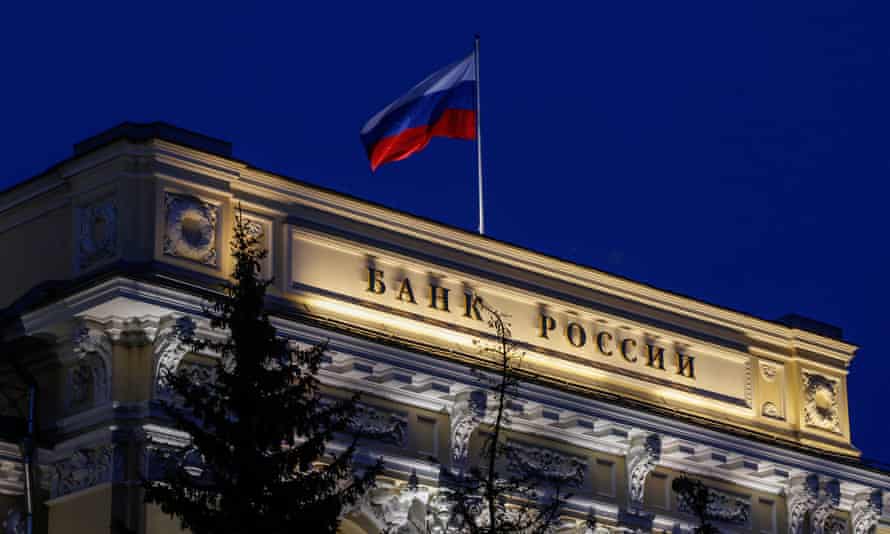Summary
Time to wrap up….
Rising inflation also pushed people to borrow more on credit, with credit card borrowing rising at the fastest rate since 2005.
Pushpin Singh, economist at the CEBR thinktank, explains:
With inflation accelerating rapidly and wage growth unable to match its pace, consumers’ real spending power is weakening.
Moreover, an increase in living costs is likely prompting consumers to turn to borrowing to fund their expenditure, resulting in multi-year high growth rates for credit card borrowing. Meanwhile, net mortgage borrowing saw a stark downtick in April as borrowing costs have risen in recent months
Inflationary pressures continue to build in the eurozone, where consumer prices jumped by 8.1% over the last year – the fastest on record.
Updated growth figures showed that France’s economy shrank in the first quarter of the year, suggesting it could be falling into recession, while Italy managed modest growth.
Switzerland’s economy was supported by decent demand for manufactured goods, while India and Canada both slowed in Q1.
China’s factory slump may have bottomed out in May, as Covid-19 restrictions are eased.
Brent crude oil has hit a new two-month high, over $124 per barrel, after EU leaders agreed a partial ban on Russian imports.
Russia has further cut off gas supplies to Europe, after state energy giant Gazprom turned off the taps to a top Dutch trader, amid an intensification of the economic battle over Moscow’s invasion of Ukraine.
Elsewhere…
Shares in consumer goods maker Unilever have jumped 8.5% after activist investor Nelson Peltz joined its board.
But discount retailer B&M have now sunk 13%, after warning profits could drop as customers struggling with the cost of living crisis opt for cheaper products.
Virgin Atlantic is to allow its cabin crew to display tattoos, the first UK airline – and leading carrier worldwide – to do so.
But chaos continues at UK airports, with TUI cancelling more than 180 flights from Manchester airport until the end of next month.
The UK government has been accused of watering down efforts to combat economic crime after putting forward proposals that could reduce transparency around small company accounts.
And Ofcom is to investigate why Royal Mail has missed its delivery targets:
The US housing market remained hot in March despite rising mortgage rates
Nationally, home prices were 20.6% higher than they were in March 2021, according to the S&P CoreLogic Case-Shiller Home Price Index, up from 20% gain in February.
CNN reckons buyers were keen to lock in deals before rates rose, leading to particularly high price rises in Sun Belt cities:
Prices in Tampa, Florida, were up the most, rising 34.8% from the year before; Phoenix was up 32.4% from a year ago and Miami saw a 32% increase. Seventeen of the 20 cities reported higher price increases in the year ending March 2022 versus the year ending February 2022.
We keep waiting for home prices to slow down, but all indications are that they’re still going up. S&P Case Shiller says prices rose 20.6% in March y/y, up from 20% in Feb. Tampa took the top spot from Phoenix which held it for more than 30 months, with a 34.8% gain.
— Jason Brooks (@brookskcbsradio) May 31, 2022
Joe Middleton
The holiday company Tui is cancelling more than 180 flights from Manchester airport until the end of next month as half-term travel chaos continues unabated.
Tui said they were axing six flights a day at the hub from 31 May until 30 June, adding to the chaos facing passengers at airports this week as they battle lengthy queues and cancelled takeoffs.
Tui, which had already announced some flight cancellations and delays at the weekend, blamed “ongoing disruption in our operation at Manchester” for the “incredibly difficult decision” to cancel 43 flights a week.
Manchester airport said they were “disappointed” to see travellers’ holiday plans disrupted by the move, which they put down to staff shortages at Tui and its ground handler Swissport, which manages its check-in and baggage handling.
The transport minister, Andrew Stephenson, said on Tuesday that the government was working to minimise disruption for travellers after passengers at airports including Gatwick, Heathrow and Manchester have reported significant delays.
He told Sky News the travel industry should have been better prepared for a surge in post-pandemic holidays, adding that the disruption was causing “a lot of distress” to those caught up in it.
Russia’s central bank is open to allowing the use of cryptocurrency for international payments, a senior bank official said on Tuesday as it presented its financial stability report, according to Reuters.
It’s a sign of a possible relaxation of its opposition to digital currencies.
But First Deputy Governor Ksenia Yudayeva reiterated that the bank, as the regulating authority, continues to see “relatively high risks” from wider use of cryptocurrency in Russia.

Russia’s central bank has warned that the country’s financial market will be forced to rely primarily on domestic investors for an indefinite period of time, due to the ‘severe sanctions’ imposed since the Ukraine war began.
In its latest Financial Stability Review, it says:
The Bank of Russia will focus on maintaining the confidence of the population and businesses in the Russian financial market and ensuring that the financial sector is sufficiently stable to provide the necessary support in the restructuring of the Russian economy.
The Central Bank of the Russian Federation also flags that restrictions preventing Russian non-financial companies accessing foreign markets have led to disruptions in technological, production and logistics chains.
The sanctions affected almost all economic entities, both exporters that faced a ban on the import of their products into certain countries and enterprises that use imported components in production.
The redirection of trade flows is further complicated by restrictions on transport infrastructure, lengthy compliance procedures, foreign counterparties’ fears of secondary sanctions and a persistently unfavourable epidemic situation in a number of countries.
RUSSIA’S https://t.co/RnGCNGRESY SAYS DOLLAR, EURO ROLE AS RESERVE CURRENCIES TO DECLINE AFTER WEST FROZEN PART OF RUSSIAN RESERVES
RUSSIA’S https://t.co/RnGCNGRESY SAYS SHARE OF FX IN BANKING SECTOR’S LIABILITIES DECLINED AMID OUTFLOW OF FX FROM CLIENTS’ ACCOUNTS
— Breaking Market News (@breakingmkts) May 31, 2022
Canada’s growth slows

Canada has joined the ranks of countries reporting slowing growth in the first quarter of 2022.
Canada’s economy expanded by 0.8% in January-March (or an annualized rate of 3.1%), below forecasts, and only half as fast as the 1.6% growth in Q4 2021.
In March alone, GDP rose by 0.7%, beating expectations, as both goods-producing and services-producing sectors grew. February’s gain was revised down.
India’s GDP report is out too… showing that growth slowed in the first three months of 2022.
India’s economic growth slowed to 4.1% year-on-year in the January-March quarter, the slowest pace in a year, official data on Tuesday showed, amid rising risks from higher prices of crude oil and commodities after Russia’s invasion of Ukraine.
Italy has stepped away from the brink of recession, after its economic performance in the last quarter was revised up.
Italian GDP rose by 0.1% in January-March, updated data show, up from a first estimate of a 0.2% decline.
This small uptick in growth was mainly driven by investment, while public expenditure and inventories were growth neutral, and private consumption and net exports both fell.
Britain’s communications regulator is investigating Royal Mail’s failure to meet its delivery targets across 2021-22.
Under Ofcom rules Royal Mail is required to deliver 93% of First Class mail within one working day of collection, and 98.5% of Second Class mail within three working days of collection.
But in the last year, only 81.8% of First Class mail was delivered within the target, compared with 95.4% of Second Class mail.
.@Ofcom starts inquiry into @RoyalMail underperformance:
* required to deliver 93% of 1st Class mail within 1 working day of collection: 98.5% of 2nd Class mail within 3 days
* across 21-22, 81.8% of 1st on target: 95.4% of 2nd
* Completed only 94% of delivery routes
— Douglas Fraser✒️🎥🎙 (@BBCDouglasF) May 31, 2022
Ofcom said it would probe this “substantial lapse in performance” — in a time in which Covid-19 hit the company.
“Ofcom takes compliance with quality of service targets very seriously.
“Our investigation … will gather evidence to understand the reasons behind this substantial lapse in performance, and determine whether Royal Mail has breached its requirements.”
A Royal Mail spokesperson said the company would fully participate with Ofcom:
“We are disappointed with our 2021-22 Quality of Service performance and apologise to all customers that have been affected by any service issues.
The Bank of England said approvals for new home loans totaled 65,974 in April, the lowest in almost two years. Economists had expected little change. The effective interest rate on new mortgages rose 9 basis points to 1.82%, the highest since August.
The figures point to a slowdown in the property market, which to date has managed to shake off the pandemic and recession to reach record prices. Consumers were buoyed by savings built up during the pandemic and a tax break on purchases but now will have to focus on increasing costs to service loans.
The jump in consumer credit swelling, and the drop in mortgage approvals, shows that its not an easy time to be making financial decisions.
Prices are rising, interest rates are rising, and a recession looks increasingly likely at some point this year, says Jayadeep Nair, chief product and marketing officer at consumer credit reference firm Equifax UK:
“What these figures from the Bank of England highlight, is how fluid the demand for credit currently is. In the mortgage market, net borrowing is down, as people opt to pay down debt to get ahead of anticipated interest rates rise.
Meanwhile, borrowing in the consumer credit space is above its pre-pandemic average for the third consecutive month, pointing to greater demand on shorter term forms of borrowing; some of this will be discretionary, but much of it will not.
UK credit card borrowing soars by most since 2005
Credit card borrowing jumped in April at the fastest annual rate in over 16 years, today’s data shows.
The Bank of England reports that credit card borrowing was 11.6% higher than in April 2021, marking the biggest increase since November 2005.
That will ring alarm bells at the Bank of England, says Andrew Montlake, managing director of the UK-wide mortgage broker, Coreco:
It shows the economic storm clouds are getting darker by the day. People can take out credit and loans if they are confident, but in this case it’s almost certainly because they are seeking extra cash to cover their bills and put food on their tables.
The drop-off in mortgage approvals is surprising as April and May have been exceptionally busy, although we do expect the combination of weaker borrower sentiment and lenders tightening their affordability to feed through in the months ahead.
Today’s money and credit figures suggest that UK consumers are increasingly borrowing more to protect their lifestyles from the surge in inflation, says Thomas Pugh, economist at RSM UK.
‘This time may be different, though. A rise in consumer borrowing over the next year is more likely to be a sign that high inflation is driving consumers to maintain their lifestyles by borrowing.



